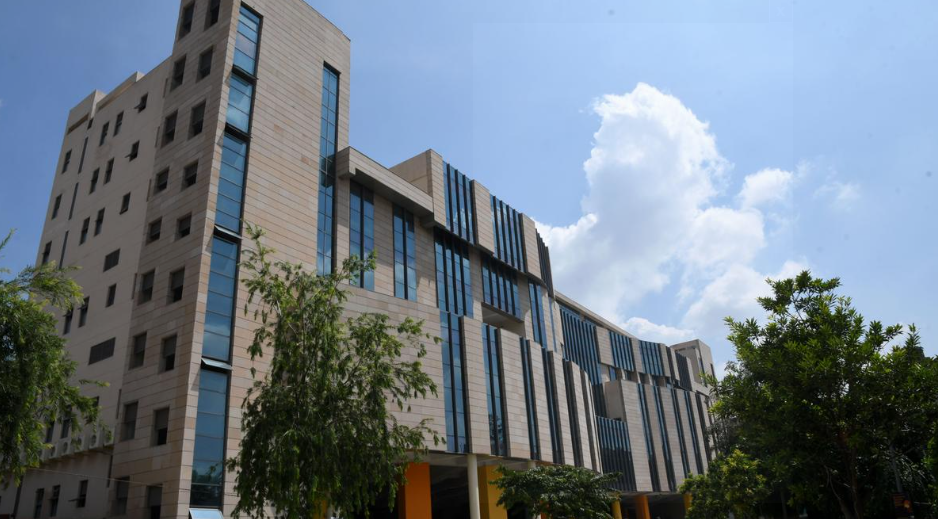IIIT-Delhi Wins Prize for Antimicrobial Resistance Project (GS Paper 2, Health)

Overview
- The Indraprastha Institute of Information Technology, Delhi (IIIT-Delhi), has been awarded the joint second prize in the Trinity Challenge’s second competition for its groundbreaking project aimed at combating antimicrobial resistance (AMR).
- The project, titled “AMRSense: Empowering Communities with a Proactive One Health Ecosystem,” adopts a comprehensive approach to enhance the monitoring, prediction, and control of AMR.
Understanding Antimicrobial Resistance (AMR)
- Antimicrobial resistance occurs when microorganisms such as bacteria, viruses, fungi, and parasites evolve and develop resistance to the drugs designed to kill them.
- This makes standard treatments ineffective, leading to persistent infections, increased spread of disease, and higher mortality rates.
- AMR is a significant global health threat, demanding improved monitoring systems, integrated data analysis, and community-level interventions to mitigate its impact.
Project Collaboration and Objectives
The “AMRSense” project is a collaborative initiative that involves several key stakeholders in the healthcare sector:
- CHRI-PATH: An organization dedicated to improving health outcomes through innovative solutions.
- Online pharmacy 1mg.com: A leading online pharmacy in India that provides access to medication and health services.
- Indian Council of Medical Research (ICMR): India’s premier body for the formulation, coordination, and promotion of biomedical research.
Key Components of the AMRSense Project
1. Community Engagement
- Empowering CHWs: The project equips community health workers (CHWs) with AI-powered tools to improve the accuracy and ease of data collection. This empowers CHWs to collect and analyze data more effectively, facilitating early detection and intervention.
- Educational Outreach: Efforts are made to educate the community about the dangers of AMR and the importance of adhering to prescribed treatments.
2. Data Integration
- Unified Data Ecosystem: The project integrates various data sources, including sales and usage patterns of antibiotics, to create a comprehensive data ecosystem. This holistic approach ensures all relevant data is available for analysis.
- WHONet Compliance: By adopting WHONet standards, the project ensures that the data collected is compatible with global monitoring systems, enhancing the ability to track and compare AMR trends worldwide.
3. Predictive Analytics
- Integrated Health Ecosystems: Combining data from different health ecosystems allows for more robust predictive analytics. This integrated approach helps in identifying emerging AMR trends and potential hotspots.
- Proactive Measures: Predictive analytics enables health authorities to take proactive measures, such as targeted awareness campaigns and timely distribution of resources to areas most at risk.
4. AMRaura Scorecard
- Monitoring and Assessment: The AMRaura Scorecard is a tool designed to monitor and assess AMR trends. It provides a clear and actionable overview of the current state of AMR, highlighting areas that require immediate attention.
- Data-Driven Interventions: The scorecard supports the creation of targeted interventions based on data insights, ensuring resources are used effectively to combat AMR.
Significance of the Award
- The recognition of IIIT-Delhi’s “AMRSense” project in the Trinity Challenge underscores the innovative and impactful nature of the initiative.
- The project’s comprehensive approach addresses several critical aspects of AMR management, including community engagement, data integration, and predictive analytics.
- This holistic strategy is crucial for creating sustainable and effective solutions to combat AMR on a global scale.
Conclusion
- IIIT-Delhi’s success in the Trinity Challenge highlights the importance of collaborative, data-driven approaches in addressing global health threats like antimicrobial resistance.
- By empowering communities with advanced tools and integrating data from various sources, the “AMRSense” project aims to create a proactive and resilient health ecosystem.
- This award not only recognizes the project’s current achievements but also emphasizes the potential for such innovative solutions to make a lasting impact on public health worldwide.


